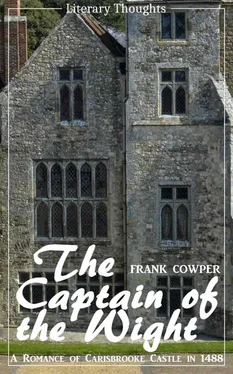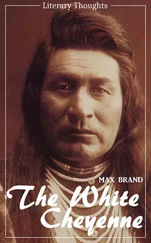1 ...6 7 8 10 11 12 ...15
CHAPTER IV. – HOW THE FLEDGLING GREW TO A COCKEREL.
By the time Ralph had reached Winchester, he had learned the names of his future companions, and had already had occasion to experience their love of practical joking, tempered, however, in this case, by the presence of their lord and his gentlemen.
The eldest of the pages was Willie Newenhall, and Ralph was not long in seeing that he was thought little of by the other three, who made him a butt for their wit, which, however, seemed to fall very harmlessly on its object.
"You see he's so parlous full of conceit, he never knows we are making game of him," said Richard de Cheke,[*] the youngest of the pages, and by far the liveliest.
[*] The old family of the Chykes, Cheikes, or Chekes, held the manor of Mottestone from 1370 to 1600, from whom the manor passed to the Dillingtons and Leighs of North Court. Sir John Cheke of their family was professor of Greek in Cambridge, and in 1544 was tutor to Edward VI.
"But when he doth find out, certes he groweth angry?" asked Ralph.
"Nay, what care we for his anger? Even I, small as I am, can teach him a lesson in all things, saving the care of his person and the filling of his skin."
"Marry, young one," said a well-grown, shapely youth, who was riding a little behind and to the left of Ralph Lisle, "here's a missive of great import, 'tis even the business of the last come page to take all such to our right worshipful bear-leader and timber breaker, old Jack in Harness himself. So do thou take it, before worse comes of it."
So saying, the youth handed Ralph a bit of paper, folded neatly, and addressed in a stiff scrawl, "Toe ye rite worchipful Syr Jakke yn Harneis."
"And who is he?" said Ralph, looking at the scrawl and then at the youth.
"Who is he, quotha? why, that you'll soon know, an you do not my bidding. That's the puissant, right valiant, and thrice-renowned knight to whom my Lord Woodville handed thee over, even as we have been handed over, to learn chivalry, and all courtesy. Therefore say I, take you this to him right promptly."
Ralph was a little puzzled. The whole was said so seriously, and in such evident good faith, that he thought he might be violating some rule already. The youth was obviously older than himself, and was doubtless a page of some months' standing. He thought on the whole it would be better to obey, trusting to his good luck to get him out of the scrape with their master if there were any trick, and to his own arm to punish the perpetrator of the joke, if it were one.
"Now, my youngling, what dost wait for?" said the page, whose name was Eustace Bowerman, and who was a second cousin of the lively young page Richard Cheke.
"Why, in sooth I am in doubt whether thou art not making game of me," said Ralph, with a good-humoured twinkle in his eye.
"This cock will crow soon," said young Cheke to the other page, who was on his right; "eh, Maurice?"
"Marry will he. We will pit him against Eustace; they'll make a rare match. Albeit Eustace is the older, I'll lay the new one will beat him. There's a deal of weight in his thews. Look at his leg as he sits his hackney."
"Shall we tell him Eustace is making game of him?"
"Nay; best let him give the missive to old Jack in Harness, and see what comes of it. List; Eustace is taking him to task. I' faith, he doth it well."
"Hark ye, sirrah! You are but just come out of the country, or I'd be wroth with thee; but as it is, I forgive thy manners. Know that all new pages have to do the bidding of the older ones without question, under pain of a leathern strap, and worse torment. Now get thee on thy message."
"Nay, fair page," said Ralph smiling, "I would be loth to do aught that should be misbecoming, and will ever obey in all that I ought, with all humility, but I am not sure in this that I ought to do your behest. Nevertheless, rather than be thought churlish, I will do what you want, only not, I pray you to understand, because I fear your talk of leathern straps and such like, of which I have little dread from thee, but because 'tis the first matter I have been asked to do, and I would rather seem to be over willing to oblige than churlish of mood."
"By my faith, 'tis a good answer," said the last page who had spoken to Richard Cheke, and who was the only one of the pages who was of high birth. He was a son of Anthony, Lord Scales, brother to Lord Woodville, and therefore himself a Woodville, and nephew to the present Captain of the Wight, which office his father had previously held.
"I like this youth dearly, even now--he will be a gain to us. Thou knowest I never cared over-much for thy kinsman Bowerman, he is so mighty coxcombified, and I would much like to see him overmatched," continued Maurice Woodville.
They had now entered the old city of Winchester, whose streets were very narrow, and made more so by the concourse of people, who all came thronging out and stood at their doors and along the pavement to see the gay troop pass.
Ralph, as he said he would deliver the note to Sir John Trenchard, took the opportunity of doing so when they were nearing the city cross, then not more than about fifty years old, perhaps, and where there was more room. He rode up alongside of the old knight, and, doffing his cap, presented to him the missive.
The old knight, who was short-sighted and rather choleric, besides being a very indifferent scholar, took the paper, and stared at Ralph.
"Eh, this for me?" he said shortly; then holding the piece of paper close to his nose, he called out,--"Why--what--By St Thomas! what meaneth this? Boy, art playing me some trick? Is this a time for thy discourteous pranks?" cried the old knight, in high wrath, crumpling up the paper, and flinging it at Ralph. "Tell me what meaneth this! Who gave thee this?"
But Ralph determined he would bear the blame himself, and settle it with his practical joker afterwards, so he said,--
"Noble sir, I was told to give it thee, so I did."
"By St Nicholas! but if thou hadst had mud given thee to bear to me, thou wouldst have done it, wouldst thou? Get thee back for a simpleton, and tell me all afterwards, when I call for thee."
They were now passing a cross street, very narrow and awkward. There was a block in front, so that Lord Woodville halted exactly opposite this street. He was talking to the Abbot of Quarr, who was on his left. Ralph was immediately behind, but a horse's length distant. The rest of the gentlemen were engaged talking together or looking up at the windows, where the burgesses' wives and daughters were gazing down at the gallant show of men-at-arms and gentlemen.
Suddenly, a drove of cattle which was being driven to market crossed the narrow street a little way down. Among them was a magnificent bull--very fierce and irritated with its journey. Seeing the red blazon on Lord Woodville's surcoat, with a bellow of fury he broke from his driver and turned down the street leading to where that nobleman was quietly sitting, with his head turned away talking to the Abbot, and rushed madly at him. It was but a very little distance, and there was no time for warning. In another second the fierce bull would have gored the noble horse and trampled on Lord Woodville.
Ralph, without a moment's hesitation, struck spurs into his horse, which gave a leap forward. He had thought of nothing but of interposing himself between his lord and the raging brute. Fortunately for him, he was not in time. But his gallant steed struck full against the shoulder of the bull with such violence that it knocked the animal over, and Ralph's horse came down at the same time, flinging his rider over his head.
The whole thing had passed so rapidly, and, from the position of the chief performers in the occurrence, was so little seen, that scarcely anybody knew what had happened. Lord Woodville was the first to take in the situation, and seeing the position of the bull, the horse, and the boy, was alarmed for the latter's safety. The horse had stumbled over the bull, which was struggling and kicking wildly with its legs, while, fortunately, Ralph had been thrown clear of them both. He still held the reins in his hands, but he did not move.
Читать дальше












